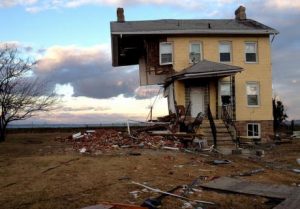
AirBnB is making headlines again in California as cities continue to roll out new legislation restricting both the site and homeowners.
It’s been a tough week for AirBnB in California. The San Francisco-based startup sued its hometown this week over the city’s new rental restrictions. Meanwhile, in Southern California, Anaheim has banned short-term rentals altogether.
SAN FRANCISCO
San Francisco’s Board of Supervisors unanimously approved new legislation in June that requires short-term rental sites, such as AirBnB to police their own listings for properties that violate city regulations. Specifically, San Francisco requires homeowners to register their rental unit with the city and display an official registration number on online listings. Under the new law, San Francisco’s Office of Short-Term Rentals will monitor hosting platforms like AirBnB on a monthly basis to identify those that violate the registration requirement. Sites will have one business day to respond and deactivate noncompliant listings or face penalties.
AirBnB filed a lawsuit in hopes to avoid thousands of dollars in daily fines it could face when the San Francisco law takes full effect next month. The company argues that the law violates Section 230 of the Communications Decency Act of 1996, which says that websites that host information are protected from laws that might hold them responsible for what people do or say on their website.
San Francisco lawmakers, of course, disagree. Matt Dorsey, a spokesperson for the San Francisco City Attorney, Dennis Herrera, argues that the law is not regulating user content at all, but regulating the business activity of the hosting platform. “It’s simply a duty to verify information that’s already required of a regulated business activity,” he wrote.
San Francisco has some of the strictest regulations in place for short-term rentals. Besides the registration requirement, the current law caps short-term rentals to a maximum of 90 days per year if the owners are not present.
The legislation regarding short-term rentals in San Francisco is ultimately tied to the housing shortage and unaffordable rental rates in the city. Many believe that short-term rentals are taking viable rental units and affordable housing units off of the market at a time when local residents need them most.
ANAHEIM
The Orange County city of Anaheim, home of Disneyland in Southern California, is taking more extreme measures against AirBnB and short-term rental sites. They are banning them altogether. City council members voted 3-2 in favor of banning short-term rentals at a meeting on Wednesday night.
Anaheim is a tourist hotspot with attractions such as Disneyland, Knotts Berry Farm, sporting events, a convention center, and more. Residents who attended Wednesday’s meeting claimed the influx of tourists in residential areas has resulted in late-night noise, litter, decreased parking, and increased rent in their neighborhoods.
Currently there are 363 permitted short-term rental units in the City of Anaheim, and they all have 18 months to shut down.
WHO’S SIDE ARE YOU ON?
I like following the AirBnB saga because citizens and lawmakers are facing legislative challenges we have never considered before. It’s interesting to me that AirBnB has caught the attention and imagination of homeowners in a way that no other site had done previously. Renting out your home is not a new concept, and cities have not previously struggled with this business model.
But it is easy to see how the popularity of AirBnB has only compounded problems of housing availability and affordability, especially in cities that are attractive to tourists and already over-priced. Perhaps stricter regulations were inevitable.
Do you agree with these new legislations? What proposals do you have for your own area?





3 Responses
This is the new business model and city governments better get on board so that communities as a whole can benefit from the “new normal.” I know for a fact that AirBnB has been a godsend for property owners faced with losing their homes. Just like in the Great Depression of the 1930s, families rented out rooms during the great recession of 2008. I don’t see why city governments just don’t require a small city fee like $5 or some fair percentage and put it in a “New Housing” fund in order to replace living units that have been diverted off the market by AirBnB.
I didn’t see any wrong idea in putting AirBnb under the law of each state it operated in. Because AirBnb will benifit most of the money they can get in clients if it is not regulated by the law. They will most likely abuse their influence in public and skip taxes which is important for the cities revenue. There will be no problem if AirBnb submits to the law.
Like!! I blog frequently and I really thank you for your content. The article has truly peaked my interest.